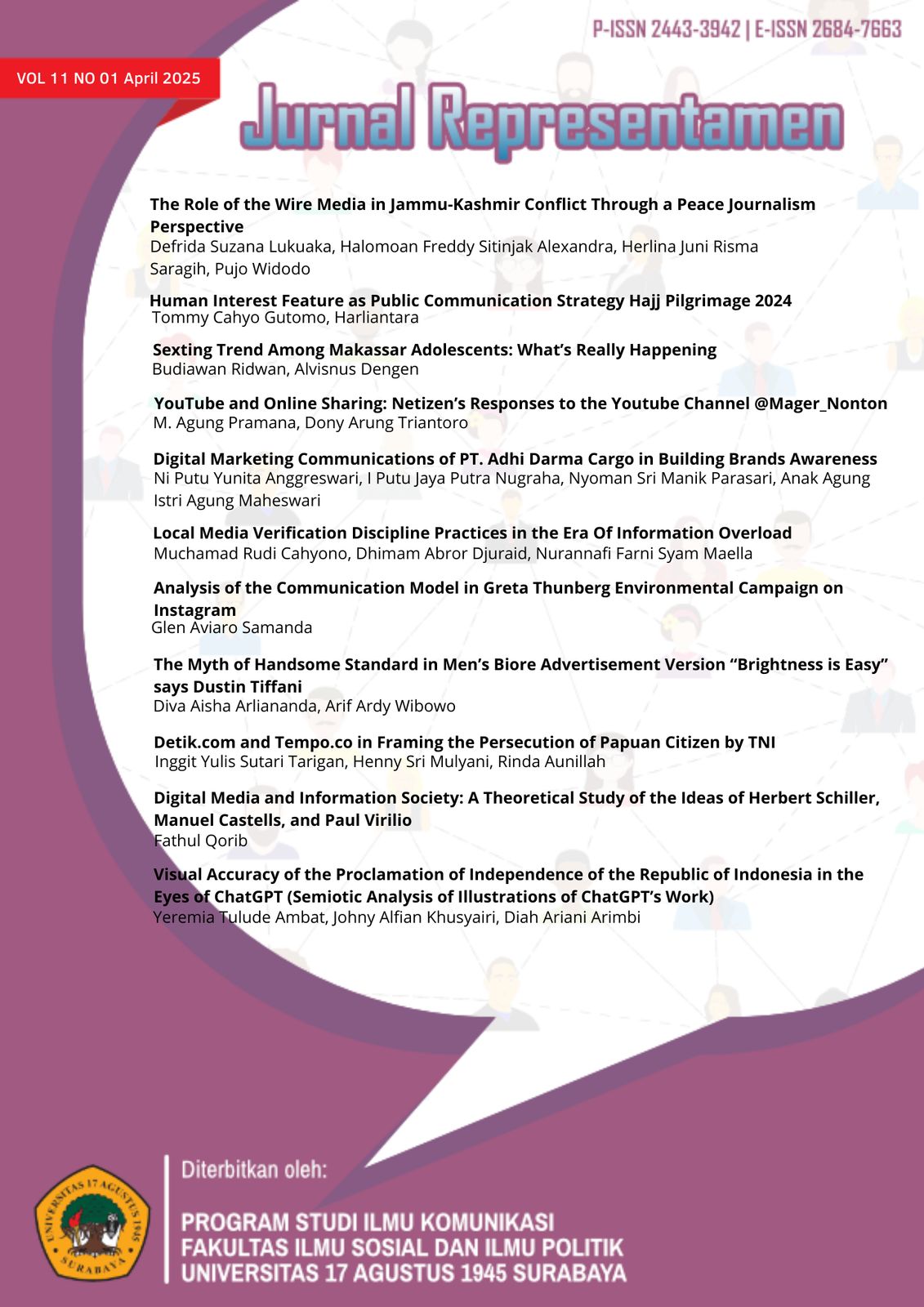Human Interest Feature as Public Communication Strategy Hajj Pilgrimage 2024
DOI:
https://doi.org/10.30996/representamen.v11i01.11661Abstract
In the organization of the Hajj pilgrimage, the Ministry of Religious Affairs of Indonesia consistently involves mass media. The Ministry recruits journalists from both mainstream media and Islamic community media to become part of the Hajj Organizing Committee (PPIH). In the 2024 Hajj season, these journalists formed the Media Center Hajj (MCH), which serves as the government’s frontline in conducting public communication with pilgrims and the broader public. MCH content is published across various platforms, with a significant portion presented in the form of human interest features. These stories are evaluated daily by the Ministry’s Public Relations team, and underperformance may affect the media's future participation in Hajj coverage. In recent years, the Ministry has emphasized human interest stories, recognizing the numerous inspiring narratives among pilgrims that resonate strongly with the public and significantly shape perceptions of the Hajj pilgrimage. The objective of these communication efforts is to foster positive public perception and enhance satisfaction with the Hajj experience, despite its logistical complexity involving 241,000 pilgrims. This study explains how the Ministry of Religious Affairs, through the MCH, strategically employs human interest features as a key tool for public communication during the 2024 Hajj. The researchers, who participated directly as members of the MCH, conclude that this strategy was effective in positively influencing public perception and presenting the Hajj implementation as successful. Keywords: Hajj 2024, PPIH, Public Communication, Human Interest, FeatureDownloads
Downloads
Published
Issue
Section
License
Authors whose manuscript is published will approve the following provisions:
The right to publication of all journal material published on the jurnal representamen website is held by the editorial board with the author's knowledge (moral rights remain the property of the author).
The formal legal provisions for access to digital articles of this electronic journal are subject to the terms of the Creative Commons Attribution-ShareAlike (CC BY-SA) license, which means Jurnal Representamen reserves the right to store, modify the format, administer in database, maintain and publish articles without requesting permission from the Author as long as it keeps the Author's name as the owner of Copyright.
Printed and electronic published manuscripts are open access for educational, research and library purposes. In addition to these objectives, the editorial board shall not be liable for violations of copyright law.











